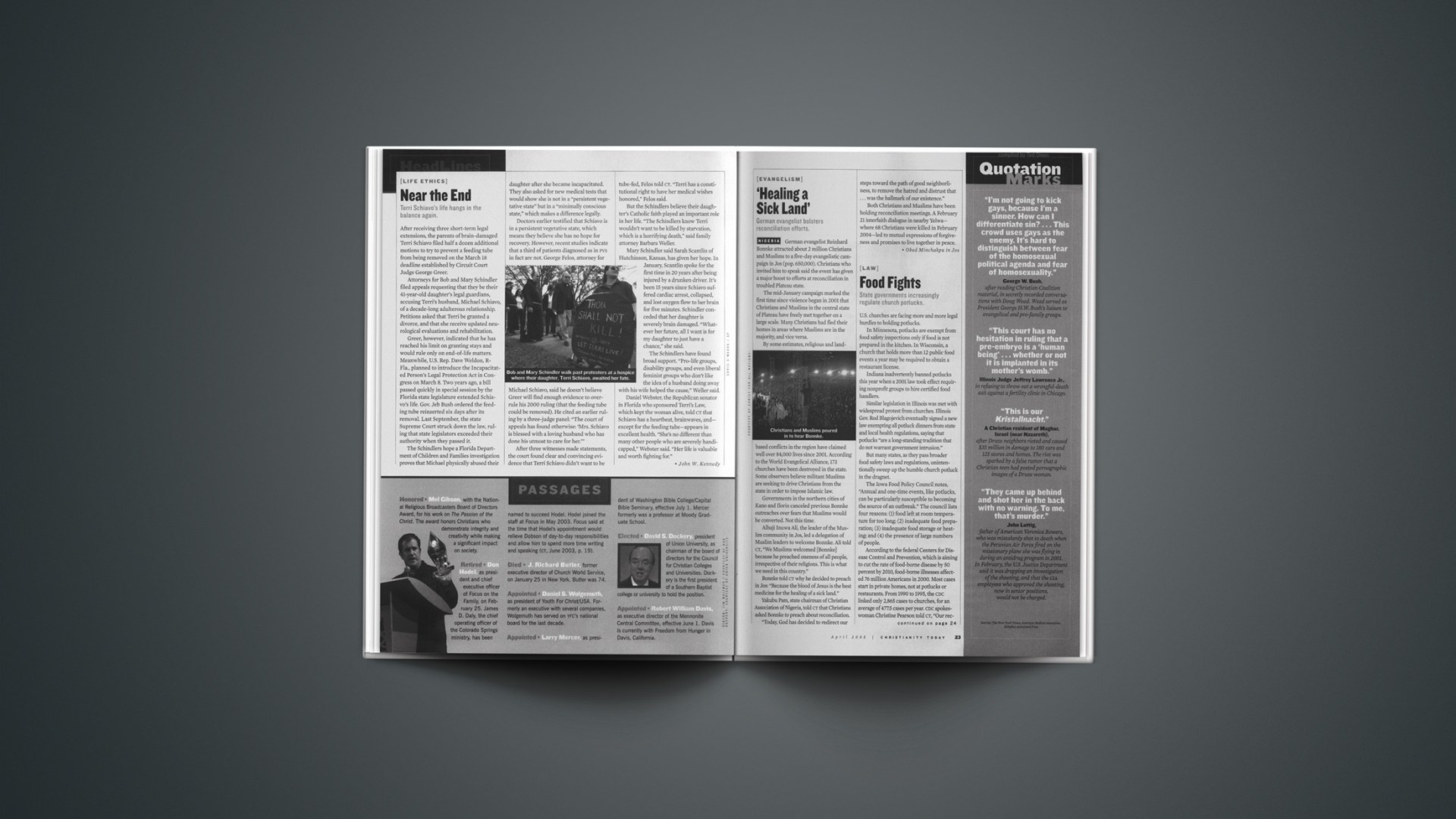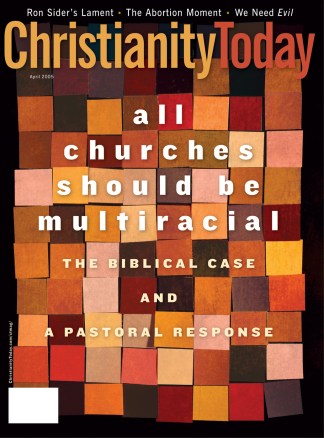U.S. churches are facing more and more legal hurdles to holding potlucks.
In Minnesota, potlucks are exempt from food safety inspections only if food is not prepared in the kitchen. In Wisconsin, a church that holds more than 12 public food events a year may be required to obtain a restaurant license.
Indiana inadvertently banned potlucks this year when a 2001 law took effect requiring nonprofit groups to hire certified food handlers.
Similar legislation in Illinois was met with widespread protest from churches. Illinois Gov. Rod Blagojevich eventually signed a new law exempting all potluck dinners from state and local health regulations, saying that potlucks “are a long-standing tradition that do not warrant government intrusion.”
But many states, as they pass broader food safety laws and regulations, unintentionally sweep up the humble church potluck in the dragnet.
The Iowa Food Policy Council notes, “Annual and one-time events, like potlucks, can be particularly susceptible to becoming the source of an outbreak.” The council lists four reasons: (1) food left at room temperature for too long; (2) inadequate food preparation; (3) inadequate food storage or heating; and (4) the presence of large numbers of people.
According to the federal Centers for Disease Control and Prevention, which is aiming to cut the rate of food-borne disease by 50 percent by 2010, food-borne illnesses affected 76 million Americans in 2000. Most cases start in private homes, not at potlucks or restaurants. From 1990 to 1995, the CDC linked only 2,865 cases to churches, for an average of 477.5 cases per year. CDC spokeswoman Christine Pearson told CT, “Our recommendations for people would be the same regardless of whether they are at a church potluck, restaurant, [or] city picnic.”
Huntsville, Alabama, food inspector Barry Glass told CT that often the key to regulation is not religion, but money.
Glass said that if “it’s open to the public and there’s money changing hands [including donations],” then the group must follow state guidelines in preparing and serving the food. But he said most churches don’t think to call in the government to inspect their bread before they break it.
Sunday night “snack suppers” are a tradition at Asbury United Methodist Church in Pasadena, Texas. Volunteers use microwaves to heat prepackaged burritos and munchies.
Ginger Neely, church office manager, told CT, “We don’t actually ‘cook’ the food.”
Still, Asbury pays $25 a year to the state health department for a license to serve meals. The church is inspected along with all the restaurants in town, even though the church has no commercial kitchen.
Copyright © 2005 Christianity Today. Click for reprint information.
Related Elsewhere:
News elsewhere about regulating potlucks include:
Lawmakers work to fix law that prohibits potluck dinners | Indiana state lawmakers are scrambling to fix a 2001 law that inadvertently outlawed the pitch-in suppers hosted by churches and civic groups that serve homecooked dishes such as green bean casseroles and pecan pies. (Associated Press, Feb. 14, 2005)
Heavens! Potlucks are illegal | Lawmakers scramble to fix law that inadvertently prohibits pitch-ins (Indianapolis Star, Feb. 13, 2005)
Lawmakers Loosen Potluck Dinner Rules | People can keep sharing their fried chicken and green bean casserole if Illinois lawmakers get their way. The Illinois Senate voted 51-1 Monday in favor of loosening health regulations for traditional potluck dinners. The measure passed the House earlier, so now it goes to the governor. (Associated Press, June 28, 2004)










